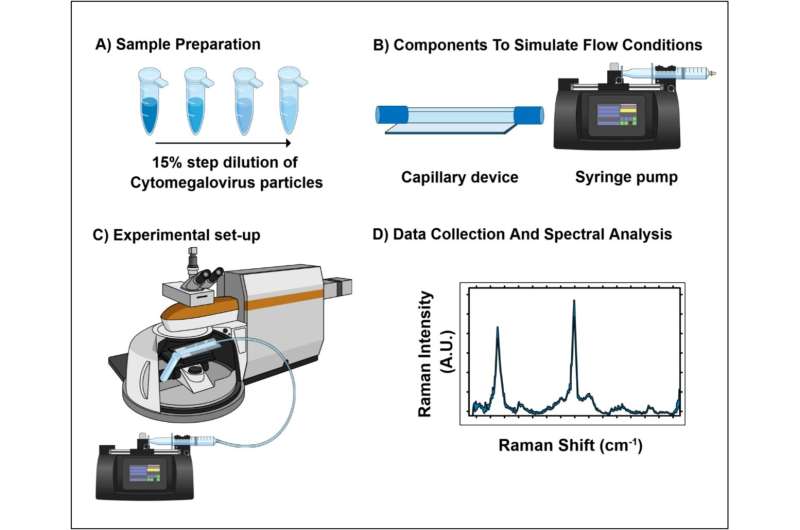The research team, led by Mohit Verma, associate professor of agricultural and biological engineering at Purdue, validated the patent-pending tool in tests that successfully measured the quality and quantity of continuously flowing viral particles.
“The current methods are more time-consuming and offline,” said Shreya Athalye, a Purdue graduate student in agricultural and biological engineering. Samples need to be removed from the production line and transferred to an instrument for testing. But the new quality-control tool can operate on the production line, yielding results in 30 seconds or less. “Doing it online will save time and money in vaccine production,” she said.
Athalye, Verma and their co-authors described their new analytical tool in Spectrochimica Acta Part A: Molecular and Biomolecular Spectroscopy. They disclosed the innovation to the Purdue Innovates Office of Technology Commercialization, which has applied for a patent to protect the intellectual property. The study combined the expertise of specialists in agricultural and biological engineering, biomedical engineering, computer science, mechanical engineering, and materials science engineering. The Merck co-authors provided the samples and ensured the study’s compatibility with industrial operations.

